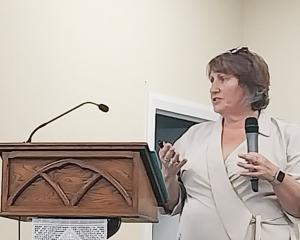Clutha Mata-Au River chairman Lewis Verduyn said Contact's plans to build dams at Luggate, Queensberry, Beaumont and Tuapeka Mouth were unacceptable and unsustainable.
"It's a price too high to pay. [Building dams] jeopardises river communities and is a serious threat to one of the Otago's most iconic natural features."
While there had been "plenty of indication" from Contact about its intentions to proceed with dams on the Clutha, the power company was underestimat-ing the opposition it would face, he said.
"There is no way communities along the river will accept this."
The Clutha Mata-Au group, an environmental organisation dedicated to preserving the ecology of the Clutha corridor, has been working to establish a riverside trail from Lake Wanaka to the river's mouth on the South Otago coast, near Kaitangata.
He questioned the logic of Contact's plans, given the "minefield of problematic issues" the electricity supply industry was experiencing.
This included issues such as weather patterns creating low water flows during winter, which in turn affected elec-tricity generation and hydro-electric lake storage capacity.
Contact complained about New Zealand's ailing power transmission grid network, which was incapable of storing excess electricity generated in times of oversupply, yet it was intent on increasing its generating capacity regardless, he said.
Contact was forced to spill water from its Clyde and Roxburgh dams in December, after a breakdown at the Tiwai Point aluminium smelter caused an oversupply of electricity generation, which the national grid could not store.
There was also the issue of "budget blowouts" when establishing dams, Mr Verduyn said.
The original contract for construction of the Clyde dam was $102.6 million, but the eventual total cost topped $2.8 billion.
Riverside communities have lived with the threat of dam construction and development for too long, he said.
They had lost 2300ha of land, farms, orchards, hundreds of jobs and livelihoods, and also tourism opportunities, asso-ciated with potential marketable sites, such as Old Cromwell town.
"Contact Energy owes the river communities for everything we've already lost and now they want it all."














